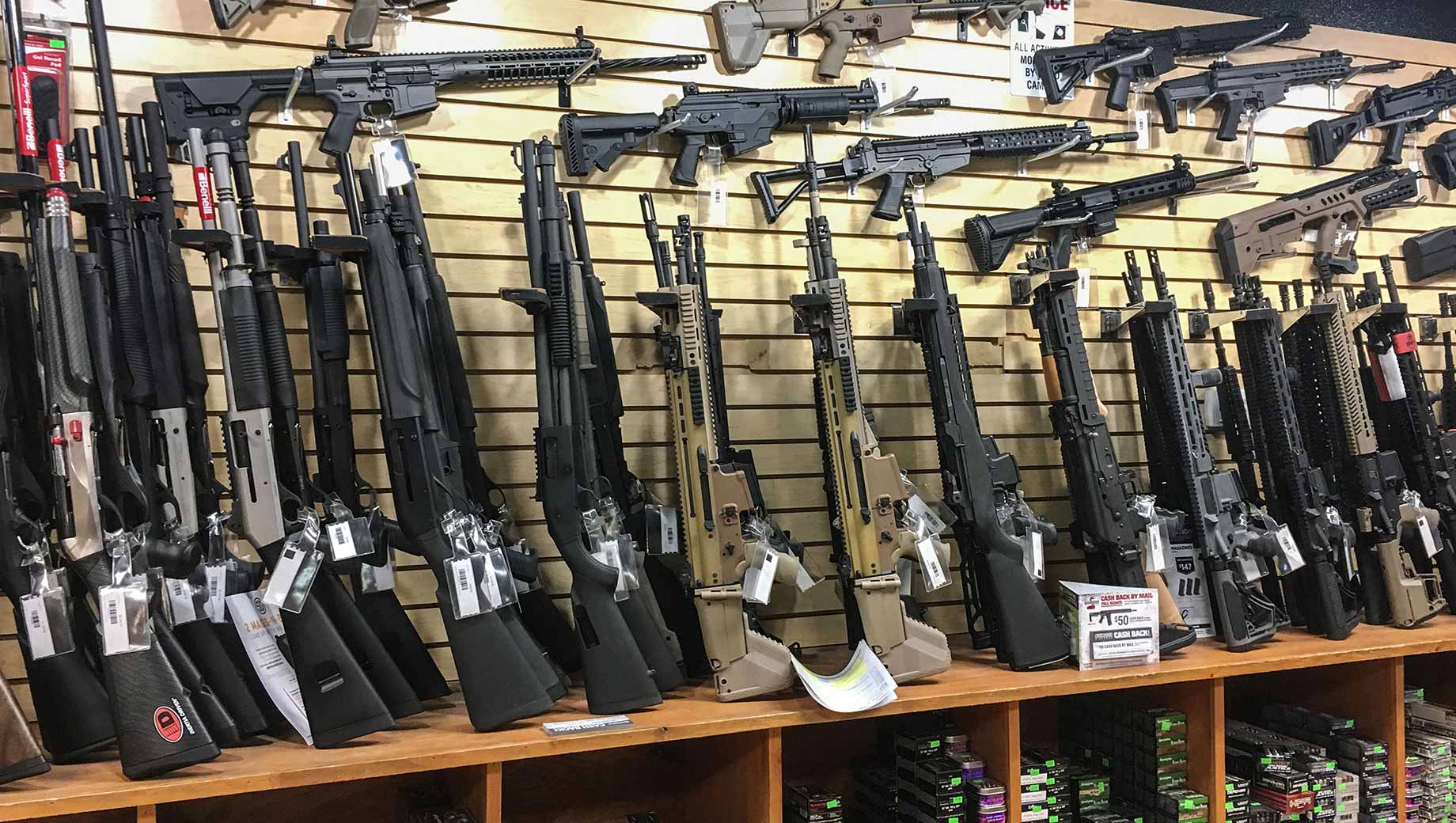Selling Guns in Louisiana: Understanding FFL Requirements To Stay Compliant and Safe

As a gun seller in Louisiana, it’s imperative to understand the state’s laws and regulations surrounding firearms sales. Operating a business that sells guns can be complex, and one of the most critical aspects is obtaining a Federal Firearms License (FFL). This license is mandatory for anyone intending to sell firearms, and it’s regulated by the Bureau of Alcohol, Tobacco, Firearms, and Explosives (ATF).
In this blog post, we’ll provide a detailed guide on obtaining an FFL in Louisiana, the different types of FFLs available, the state’s gun laws, conducting background checks, and how to adhere to and pass compliance inspections and audits. By the end of this article, you’ll understand how to sell guns in Louisiana while staying compliant and safe.
Understanding Louisiana FFL Requirements
An FFL is a license that allows individuals or entities to engage in the business of selling firearms. The ATF is responsible for issuing and regulating these FFLs, a federal requirement for ALL gun sellers in the United States. In Louisiana, the state authorities permit the sale of firearms, and having an FFL engage in this business is mandatory.
Obtaining an FFL in Louisiana is complex and requires a thorough understanding of the state’s requirements and regulations. Applicants must complete an application and fingerprint card, pass a background check, and pay the necessary fees (more on later). FFL applicants must also meet specific criteria, such as being at least 21 years old, having no felony convictions*,* and not being prohibited from possessing firearms. Additionally, FFL applicants must have a physical storefront or a commercial location where they intend to conduct their firearms business.
What Are the Different Types of FFLs, and Which One Is Right for My Business?
The ATF offers several types of FFLs, each with specific requirements and restrictions. The most common types of FFLs in Louisiana are Type 1 FFLs, which are for dealers who intend to sell firearms. Type 2 FFLs are for pawnbrokers, while Type 3 FFLs are for collectors of curios and relics.
Other types of FFLs include Type 6, which is for ammunition manufacturers, and Type 7, which is for firearms manufacturers. The fees for FFL licenses can vary. For example, a Type 01 Dealer in Firearms license is $200 for the first three years, while a Type 07 Manufacturer of Firearms and Ammunition is $150 for the first three years. The fee will be less if you’re applying for a license renewal. Other expenses include fingerprinting and background check fees ranging from $10 to $100 per person.
Also, like every other state, an FFL must be renewed every three years in Louisiana. The renewal process typically begins 60 days before the expiration date of the license. Failure to renew the FFL on time may result in the revocation of the license and the inability to conduct firearm-related activities legally. Therefore, it’s crucial to remain aware of the expiration date and initiate the renewal process well in advance.
The type of FFL right for your business will depend on the type of firearms you intend to sell and the scope of your operations. Research and understand the fees associated with each kind of FFL in Louisiana before applying for a license to ensure you’re adequately prepared financially.
How Do You Obtain a Louisiana FFL?
If you plan to sell firearms in Louisiana, you need a Federal Firearms License (FFL). Here are the steps you need to follow to get your FFL:
- Complete the required ATF Form 7/5310.12 to start the FFL application process. The completed form must be submitted to the ATF. The application process can take up to 60 days to complete.
- Provide Detailed Business Information Applicants must provide detailed information on their business, including the location, hours of operation, and types of firearms they intend to sell. This information will help the ATF, and local authorities ensure that the business complies with federal and state regulations.
- Obtain Approvals and Permits Applicants must comply with federal and state regulations and obtain appropriate approvals and permits from local and state authorities.
- Undergo Background Check and Business Inspection Once the application is submitted, the ATF will conduct a background check on the applicant. The local authorities will inspect the business location to ensure it meets all state and federal requirements.
- Display Your FFL Prominently If the application is approved, the applicant will receive their FFL, which must be displayed on the business premises.
Following these steps, you can obtain an FFL in Louisiana and legally sell firearms.
Overview of the Louisiana State Gun Laws
In addition to obtaining an FFL, it’s essential to understand Louisiana’s state gun laws. The state has some of the most relaxed gun laws in the country, and it’s legal to carry a firearm openly without a permit. However, following specific regulations, such as background checks for firearms purchases (when necessary) and adhering to the restrictions on carrying guns in particular locations, is still mandatory.
Regarding private sales or transactions, no background check is required in Louisiana (although it is recommended). Louisiana requires all gun buyers to undergo a background check before purchasing a firearm from an FFL. Additionally, the state prohibits the sale of firearms to convicted felons, individuals with a history of mental illness, and those under 18.
While Louisiana doesn’t prohibit the open carrying of firearms, it’s illegal to carry them in specific locations, such as schools, courthouses, and government buildings. Gun owners must know the state’s gun laws and comply with all regulations to avoid penalties and legal consequences.
FFL dealers in Louisiana can sell a variety of firearms, including handguns, shotguns, rifles, and antique guns. However, certain types of firearms, such as fully automatic weapons, are heavily regulated by the federal government and require special licensing and permits. Others, like machine guns, are illegal to sell and own in Louisiana. If you’re considering starting a gun business in Louisiana, we highly recommend reviewing the Louisiana State Laws and Published Ordinances regarding Firearms.
How To Sell Guns Online in Louisiana
Selling guns online is becoming increasingly popular, but it’s essential to understand the regulations involved to ensure that all transactions are legal. Here are the steps you need to follow to sell guns online in compliance with Louisiana and federal laws:
- Obtain an FFL and Comply with Regulations Gun sellers must possess an FFL and comply with all state and federal regulations, including conducting background checks for gun buyers and obtaining the necessary documents; this ensures that transactions are conducted legally and accurately recorded.
- Complete a Bill of Sale and Obtain the Buyer’s ID. Once a buyer has been identified, a bill of sale must be completed to record the transfer of ownership, and the seller should obtain a copy of the buyer’s ID for their records.
- Consider Additional Restrictions and Regulations Certain firearms, such as assault weapons, may be subject to additional federal restrictions and regulations in Louisiana. Sellers should consider these regulations when preparing to sell a gun online.
- Ship Only to FFL Holders Sellers must ensure they only ship firearms to FFL holders. In Louisiana, a person can receive a gun through a licensed dealer or transfer it between two Louisiana residents. However, handguns must be shipped to a dealer in the buyer’s state of residence, and a background check must be conducted through a licensed dealer before the transfer.
- Comply with Additional State and Federal Regulations All parties involved should comply with any additional state and federal regulations to avoid violating any laws regarding the shipping of firearms.
By following these steps, gun sellers can legally sell firearms online while complying with all applicable regulations.
How To Conduct Background Checks on Gun Buyers
Conducting background checks on gun buyers is mandatory when selling a gun from an FFL in Louisiana, and it’s a critical aspect of selling firearms responsibly. Here’s what you need to know to conduct background checks on gun buyers:
- Use the National Instant Criminal Background Check System (NICS). The ATF requires FFL holders to conduct background checks on all gun buyers to ensure that the buyers are not prohibited from owning firearms.
- Obtain Buyer’s Information The dealer must obtain the prospective buyer’s personal information, including the full name, date of birth, and Social Security number.
- Submit Information to NICS The dealer then submits this information to NICS, which searches several databases for criminal history, mental health records, and other disqualifying factors.
- Proceed or Deny Sale If the NICS check returns with a “proceed” response, the dealer can proceed with the sale. If the check comes back with a “denied” reply, the dealer must deny the sale and inform the buyer of the reason for the denial.
By following these steps, FFL holders can ensure they conduct background checks on gun buyers legally and responsibly.
Compliance Inspections and Audits
FFL holders in Louisiana are subject to compliance inspections and audits by the ATF. These inspections ensure that gun sellers comply with all state and federal regulations and maintain accurate records of all transactions.
During an inspection, the ATF will review the FFL holder’s records and inspect the business premises to ensure that all firearms are stored safely and securely. The ATF may also request to interview employees, verify licenses and permits, and examine inventory. They will also look for signs of illegal activities or violations, such as unregistered firearms, improperly stored explosives, or prohibited individuals handling firearms. The business may face fines, license revocation, or criminal charges if a violation is found. Companies must maintain accurate records and stay current on regulatory changes to avoid potential issues during ATF audits and inspections.
Penalties for Non-Compliance With FFL Requirements
Non-compliance with FFL requirements can result in severe penalties, including fines, license revocation, and criminal charges. To prevent this, gun sellers must ensure that all employees understand the regulations and compliance requirements and receive proper training on firearms safety and compliance in Louisiana.
The violations in Louisiana can vary depending on the severity of the violation. For example, a minor offense may result in a warning letter or a small fine. In contrast, severe violations like selling firearms to prohibited individuals can result in license revocation, criminal charges, or both. The fees for an FFL violation in Louisiana can range from $500 to $2,500, depending on the severity and nature of the violation. In addition to the fines, violators may face jail time of up to six months or be required to complete community service. Harsher penalties may apply if a person is convicted of multiple or second violations.
Conclusion and Key Takeaways
To successfully sell guns in Louisiana, it’s crucial to have a comprehensive understanding of the state’s regulations and adhere to industry best practices. Obtaining an FFL is mandatory, and compliance with all state and federal regulations is necessary, including conducting thorough background checks on buyers, maintaining precise records, and undergoing ATF compliance inspections and audits.
Equally crucial is the need for all staff to understand these regulations and compliance requirements and receive adequate training on firearms safety and compliance. By following these guidelines, gun sellers can operate safely and responsibly, minimizing the risk of legal and financial repercussions.
If you’re considering starting a firearms business, talk to a Zenti representative today to apply for a firearms merchant account and find out what solution is right for you!
Read Next

Find out whether Authorize.Net works for high risk merchants, what restrictions you might face and how to get approved.

Get expert advice on selling CBD products on Shopify, including compliance tips and setting up secure payment options.

Find out why Square may deactivate merchant accounts and steps to resolve issues and maintain uninterrupted payment services.
Need a High-Risk Merchant Account?
Disruption-free payment processing at the best price for your situation, guaranteed.
Get Free Guidance Now!